February 2014 in “아시안뷰티화장품학술지” Natural extracts like peppermint and rosemary oils are effective for hair growth and scalp health.
[object Object]  September 1997 in “JEADV. Journal of the European Academy of Dermatology and Venereology/Journal of the European Academy of Dermatology and Venereology”
September 1997 in “JEADV. Journal of the European Academy of Dermatology and Venereology/Journal of the European Academy of Dermatology and Venereology” Psychological factors play a significant role in developing alopecia areata.
 117 citations,
August 2008 in “Sociology of Health and Illness”
117 citations,
August 2008 in “Sociology of Health and Illness” The conclusion is that the increasing use of drugs for lifestyle reasons is a complex issue influenced by corporate profit, consumer behavior, and the medicalization of everyday life, with potential negative effects on personal well-being.
 September 2023 in “Fides et Ratio”
September 2023 in “Fides et Ratio” The safety and effectiveness of gender-affirming treatments for children are uncertain, with potential long-term risks like infertility.
 January 2018 in “Springer eBooks”
January 2018 in “Springer eBooks” Men and women need different facial rejuvenation treatments due to distinct aging processes and anatomical differences.
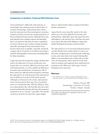 October 2017 in “Dermatologic Surgery”
October 2017 in “Dermatologic Surgery” Men are increasingly getting botulinum toxin treatments, requiring higher doses and different techniques than women for a natural look.
December 2014 in “대한피부미용학회지” Natural hair-loss preventers from plants and herbs are becoming popular due to fewer side effects and added benefits.
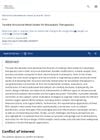 8 citations,
June 2023 in “Advanced functional materials”
8 citations,
June 2023 in “Advanced functional materials” Tunable structured metal oxides show promise for various medical treatments due to their versatility and cost-effectiveness.
[object Object] 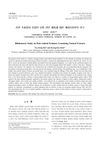 August 2023 in “Han'gug miyong haghoeji/Journal of the Korean society of cosmetology”
August 2023 in “Han'gug miyong haghoeji/Journal of the Korean society of cosmetology” More research is needed on natural hair products, especially clinical studies.
 1 citations,
October 2017 in “Dermatologic Clinics”
1 citations,
October 2017 in “Dermatologic Clinics” Men are increasingly using energy-based skin treatments for workplace success, with lasers and other devices effectively improving skin and body appearance.
 October 2021 in “Indian Journal of Plastic Surgery”
October 2021 in “Indian Journal of Plastic Surgery” Hair transplant techniques have improved and become less invasive over time, but there are concerns about unregulated centers. The market is growing, with potential for more growth in India due to increasing hair loss cases. New technologies like robotic transplants are promising for the future. Surgeons are encouraged to prioritize patient safety and understand the science behind their techniques.
 January 2008 in “Elsevier eBooks”
January 2008 in “Elsevier eBooks” More men are getting cosmetic surgery, with nose jobs and hair transplants being popular, and choosing a qualified surgeon is important.
 December 2021 in “Turkderm”
December 2021 in “Turkderm” The COVID-19 pandemic led to fewer dermatology patients, more stress-related skin conditions during the crisis, and a rise in contact dermatitis after, with ongoing concerns for public health and treatment delays.
 25 citations,
November 2005 in “Facial Plastic Surgery”
25 citations,
November 2005 in “Facial Plastic Surgery” The article concludes that surgeons should tailor facial surgery techniques for Asian males to their unique cultural and anatomical needs.
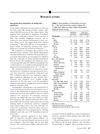 24 citations,
December 2011 in “Journal of The American Academy of Dermatology”
24 citations,
December 2011 in “Journal of The American Academy of Dermatology” Melanoma survivors are more likely to use sunscreen and seek shade than others, but less than half often use sunscreen and avoid the sun, and some still use tanning beds.
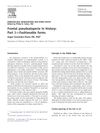 14 citations,
August 2012 in “Clinics in Dermatology”
14 citations,
August 2012 in “Clinics in Dermatology” In the Middle Ages, European noblewomen intentionally removed forehead hair to be fashionable, showing how beauty standards can affect the perception of hair loss.
12 citations,
April 2009 in “Agricultural sciences in China/Agricultural Sciences in China” Hoxc13 gene expression and skin thickness change similarly during cashmere goat hair follicle development.
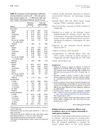 4 citations,
December 2011 in “Journal of The American Academy of Dermatology”
4 citations,
December 2011 in “Journal of The American Academy of Dermatology” Using more minoxidil solution can lead to better hair growth, but people often use only half the recommended amount. Education and motivation can improve results.
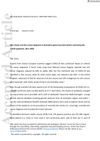 3 citations,
May 2021 in “British Journal of Dermatology”
3 citations,
May 2021 in “British Journal of Dermatology” The COVID-19 pandemic led to fewer skin checks and skin cancer diagnoses in Australia in 2020.
3 citations,
July 2015 in “Pediatrics in review” Precocious puberty is starting earlier due to factors like obesity and chemicals, with treatment focusing on preserving height and addressing social issues.
2 citations,
July 2021 in “The journal of investigative dermatology/Journal of investigative dermatology” Sex hormones likely don't affect atopic dermatitis in adolescents and adults.
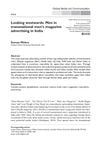 2 citations,
October 2017 in “Global Media and Communication”
2 citations,
October 2017 in “Global Media and Communication” The conclusion is that top men's magazines in India promote Western ideals of masculinity, favoring fair-skinned, youthful, and Western Caucasian men.
 1 citations,
July 2023 in “International Journal of Molecular Sciences”
1 citations,
July 2023 in “International Journal of Molecular Sciences” Old psychiatric drugs are increasingly being used for new purposes, and technologies like SmartCube® help create new drugs.
 1 citations,
March 1997 in “Journal of the American Pharmaceutical Association”
1 citations,
March 1997 in “Journal of the American Pharmaceutical Association” Pharmacists play a key role in helping patients use over-the-counter products correctly, including those for hair regrowth and smoking cessation.
 December 2024 in “Media Dermato Venereologica Indonesiana”
December 2024 in “Media Dermato Venereologica Indonesiana” Acne vulgaris was the most common skin disorder overall.
 September 2024 in “Journal of the American Academy of Dermatology”
September 2024 in “Journal of the American Academy of Dermatology” The New York Times article boosted interest in using low dose oral minoxidil for hair loss.
 November 2023 in “Jundishapur journal of health sciences”
November 2023 in “Jundishapur journal of health sciences” Better training and awareness are needed to properly diagnose and treat tinea favosa in immigrant populations.
 June 2023 in “Trichology and cosmetology:”
June 2023 in “Trichology and cosmetology:” Ageratum Conyzoides, when taken orally, can effectively reduce hair loss and improve hair growth.
June 2023 in “Australasian Journal of Dermatology” Australian dermatologists are updating their prescriptions for male pattern baldness.
 April 2018 in “Journal of Investigative Dermatology”
April 2018 in “Journal of Investigative Dermatology” Older mice healed wounds better but lost more weight and might have weaker immune systems afterward.























